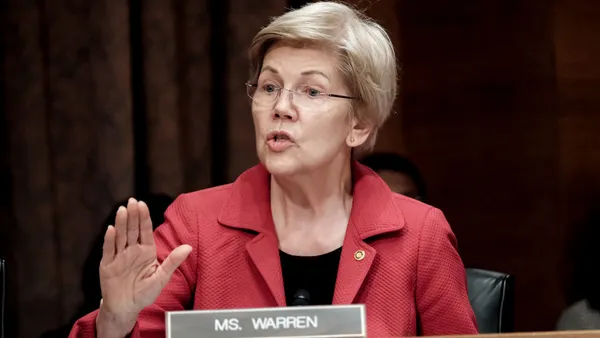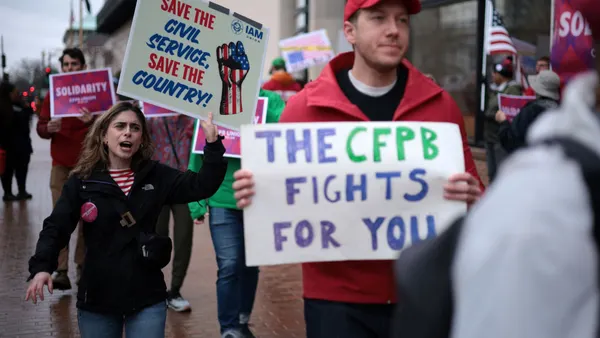Dive Brief:
- Nearly two dozen of the nation’s governors wrote to members of Congress on Tuesday, urging them to add cannabis banking legislation to the 2022 National Defense Authorization Act (NDAA), calling the matter a "public safety issue that Congress has a responsibility to address."
- The House of Representatives already added the Secure and Fair Enforcement (SAFE) Banking Act to its version of the NDAA in September. The SAFE Act, which shields banks that service state-legal cannabis businesses from federal regulators’ penalties, has been introduced in every Congress since 2013 by Rep. Ed Perlmutter (D-CO) and has passed the House five times. The Senate, however, has never voted on the measure.
- Democrats gained control of the Senate with the 2020 election, but the chamber could once again serve as a roadblock to the bill, as lawmakers such as Senate Majority Leader Chuck Schumer, D-NY and Sen. Cory Booker, D-NJ, said they would prefer to pass more comprehensive cannabis legislation ahead of the narrower SAFE Act.
Dive Insight:
The governors listed a series of "harms" they said the SAFE Banking Act would remedy by giving legal cannabis companies access to banking services.
"Medical and recreational cannabis sales in the U.S. were estimated to total $17.5 billion last year, but because of antiquated federal banking regulations, almost all cannabis transactions are cash-based," the governors, led by Colorado Democrat Jared Polis, wrote in Tuesday’s letter. "Not only are cash-only businesses targets for crime, cannabis businesses are further disadvantaged compared to other legal businesses by being unable to open bank accounts or obtain loans at reasonable rates. The cannabis industry is legal in some form in the majority of U.S. states and it is too large of a market to be prohibited from banking opportunities."
Signing the letter were the governors of 20 states, apart from Colorado: Alaska, California, Connecticut, Illinois, Maine, Massachusetts, Michigan, Minnesota, Nevada, New Jersey, New Mexico, New York, North Dakota, Oregon, Pennsylvania, Rhode Island, Utah, Virginia, Washington and Wisconsin.
The mayor of Washington, D.C., and the governors of Guam and the U.S. Virgin Islands also signed.
Lawmakers have tried to attach cannabis banking legislation to larger measures in the past.
House Democrats tried to fold it into two COVID-19 relief bills this year, but the language was not included in the bill President Joe Biden signed in March.
Hopes that the bill could pass as stand-alone legislation were also dampened this year as key lawmakers in the Senate turned their focus to the Cannabis Administration and Opportunity Act (CAOA), draft legislation that would remove cannabis from the federal list of controlled substances and expunge federal nonviolent marijuana crimes.
"The banking bill only deals with a small part of [issues related to cannabis], but not what needs to be done. We need a broad comprehensive bill," Schumer said in July.
Schumer, however, indicated on a podcast last month that he may be open to advancing the cannabis banking bill by folding it into the NDAA, so long as lawmakers can incorporate certain social equity provisions, according to Marijuana Moment.
"[E]verything should be explored, and if people in the Senate can add some things on, that would make it more of a palliative. But again, I don’t want to bargain against myself here," Schumer said. "We need comprehensive reform. That’s what we need."












